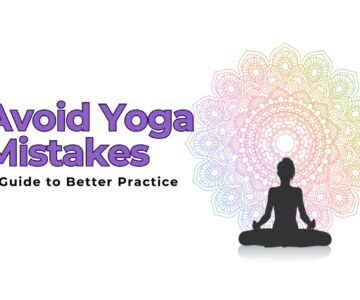 Is Cold Water Good for You? The Truth About Cold Showersby admin / July 21, 2025
Is Cold Water Good for You? The Truth About Cold Showersby admin / July 21, 2025Morning vs Evening Walk: Which Is Better for Your Health?
Walking is one of the simplest and most underrated forms of exercise. It’s free, requires no equipment, and can be done by almost anyone, anywhere. But one of the most common questions people ask when starting a walking routine is: Should I walk in the morning or in the evening?
While both options have unique health benefits, the “best time to walk” often depends on your personal lifestyle, body rhythms, goals, and preferences. In this post, we’ll dive into the pros and cons of morning vs evening walk, backed by science, lifestyle considerations, and anecdotal insights to help you decide what suits you best.
The Case for Morning Walks
1. Boosts Your Energy for the Day
Starting your day with a brisk walk can wake up your body and mind. It gets your blood circulating and jumpstarts your metabolism. A study published in Scientific Reports (2017) showed that morning light exposure helps regulate your circadian rhythm, making you feel more alert during the day and sleepier at night.
2. Enhances Mental Clarity
Ever noticed how a short morning walk makes you feel sharper and more focused? Morning walks increase the flow of oxygen to the brain, which can help improve cognitive function and mood. It sets a positive tone for the day.
3. Supports Weight Loss and Fat Burning
Walking in a fasted state (before breakfast) can help your body tap into fat stores for energy. Morning walkers often report better consistency, which is key to long-term fitness goals like weight loss.
4. Fewer Distractions
One of the underrated benefits of morning walks is peace. The world is quieter, traffic is lower, and there are fewer digital distractions. This makes it an ideal time to reflect, meditate, or simply enjoy the silence.
5. Sunlight = Vitamin D
Morning sunlight is a natural source of Vitamin D, which supports immunity, bone health, and mood regulation. Just 10-15 minutes of sun exposure can do wonders.
Best For:
- Early risers
- People seeking routine
- Fat burning or weight loss goals
- Mood-boosting and productivity
The Case for Evening Walks
1. Great Stress Reliever
After a long day of work or responsibilities, evening walks act as a decompression zone. A walk during or after sunset can help reduce stress levels, relax your muscles, and ease the transition from work to rest.
2. Improved Digestion
A light walk after dinner is excellent for digestion. It helps food move through your system more efficiently and can prevent issues like bloating, indigestion, and even acid reflux.
3. Better Performance
Your body is generally warmer and more flexible in the evening, which means you might perform better physically. Muscles are looser, and energy levels might be higher after a day of fueling.
4. Social Connection
Evening walks are often more social. Parks, streets, and neighborhoods are livelier during this time. Walking with family or friends can make it more enjoyable and help build stronger bonds.
5. Improved Sleep (for Some)
A relaxed evening walk (not vigorous exercise) can help some people sleep better by winding down the nervous system. But for others, too much activity late in the evening may delay sleep—listen to your body.
Best For:
- Night owls
- People managing stress
- Those looking for light post-meal activity
- Social or family walkers
Morning Walk vs Evening Walk: Side-by-Side Comparison
| Feature | Morning Walk | Evening Walk |
| Energy Boost | Jumpstarts your day | Not as energizing |
| Fat Burning | May burn more fat (fasted) | Can still aid weight loss |
| Mood Boost | Excellent for setting the tone | Helps decompress from stress |
| Sleep Impact | Supports better sleep | May interfere if done too late |
| Social Aspect | Mostly solo | More social possibilities |
| Convenience | Less crowded, more peaceful | Fits after-work schedule |
| Digestion | No direct impact | Great after meals |
Tips for Making the Most of Your Walk
Regardless of the time, you walk, here are some simple tips:
- Warm-Up & Cool Down: Don’t skip these, even if walking feels gentle.
- Stay Hydrated: Drink water before and after.
- Dress for the Weather: Comfortable shoes and clothes matter.
- Track Your Progress: Use a pedometer or app to stay motivated.
- Add Music or Podcasts: Make it enjoyable and educational.
- Switch Scenery: Explore new routes to avoid monotony.
Final Verdict: Which Is Better?
There’s no one-size-fits-all answer to the morning vs evening walk debate.
- If your goal is mental clarity, habit-building, and fat burning, a morning walk may be your best friend.
- If you’re more focused on stress relief, digestion, and family bonding, evening walks could be ideal.
Ultimately, the best time to walk is when you can do it consistently. Regular walking—regardless of time—can lower blood pressure, improve cardiovascular health, reduce anxiety, support joint health, and even increase life expectancy.
Final Thought
You don’t have to pick one forever. You can mix it up based on your schedule, mood, or goals. Some people even do both, enjoying a power walk in the morning and a slow stroll at night. The important thing is to keep walking.
“Walking is man’s best medicine.” — Hippocrates
So, lace up your shoes and step outside—whether it’s the golden sunrise or the soothing twilight, your body and mind will thank you.



